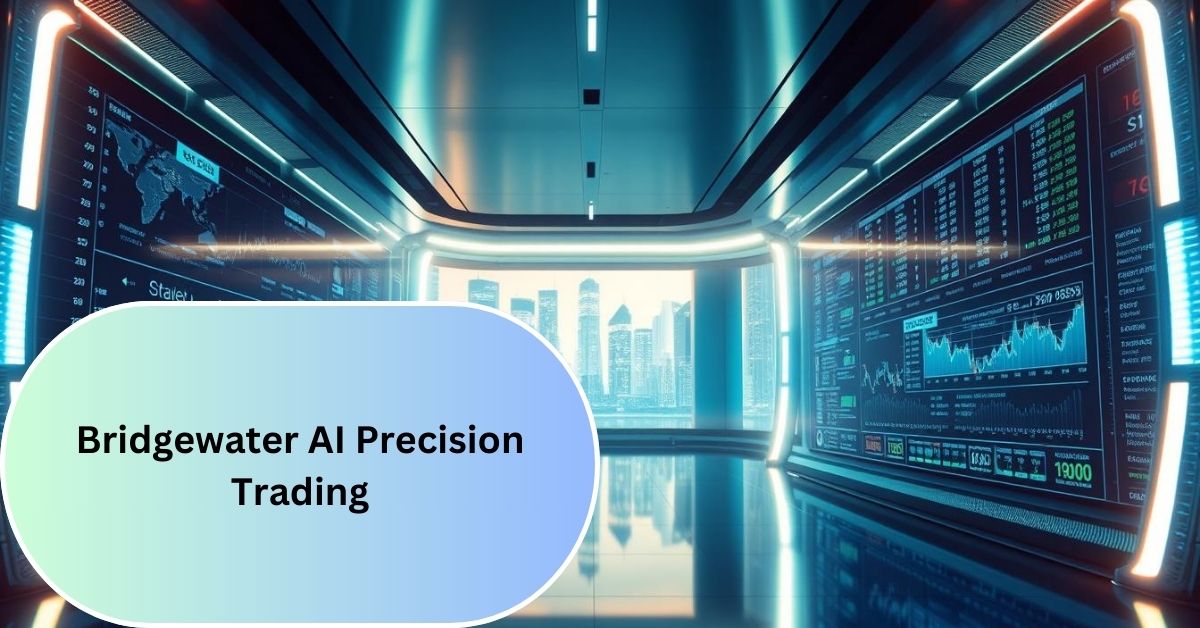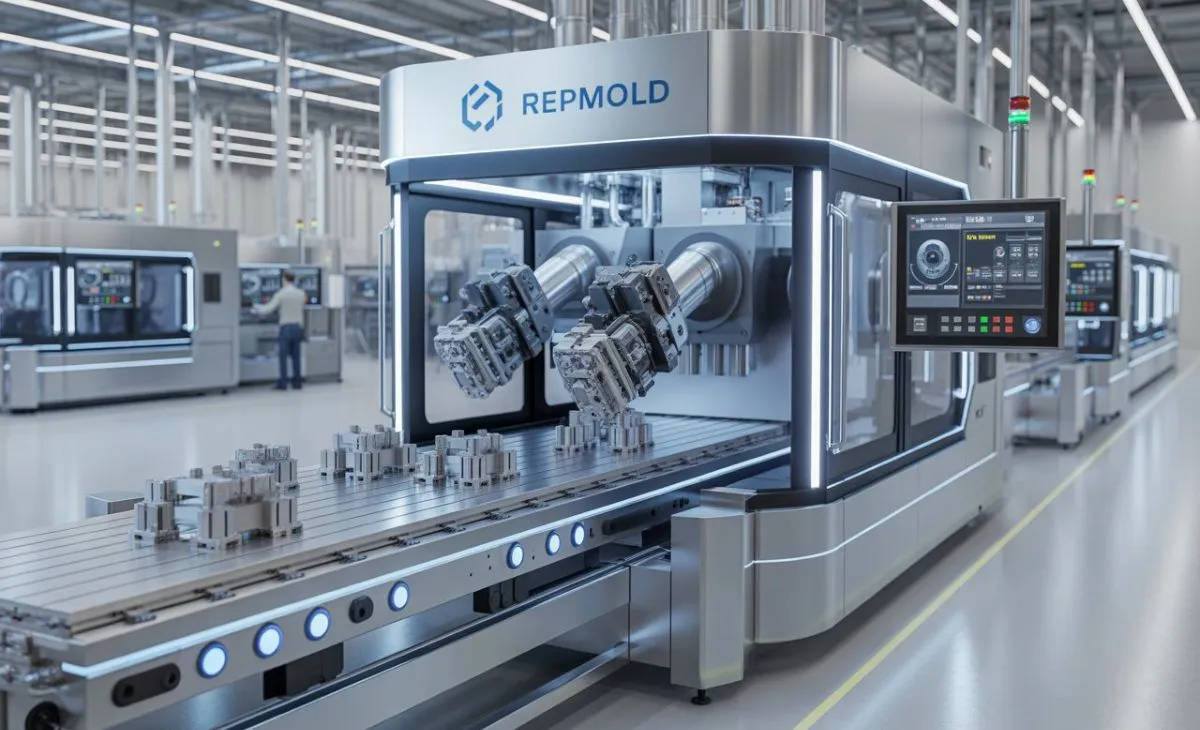Artficial Intelligence is revolutionising the world of industries at such a fast pace. More significantly, it is changing sea faces in the finance industry.
Nowadays, investment firms are undeniably indispensable for other investment firms to trade besides investment firms themselves.
As integration grows day after day, AI offers the scope of new avenues towards growth and efficiency. There comes in the fray Bridgewater Associates, which is the worldwide investment management leader.
The trading strategies of Bridgewater are now embracing AI. As such, it has been part of the approach that Bridgewater uses in its business. The investment decisions have changed significantly since the use of AI in the firm.
Bridgewater uses the advanced systems and machine learning to enhance market predictions and improve risk management. This change represents a broader change in the nature of the finance industry’s operations.
Table of Contents
What Is Bridgewater Associates:
Founded in 1975 by Ray Dalio, Bridgewater Associates happens to be one of the largest investment firms in the world, managing over $108 billion in assets for institutional clients, including governments.
It provides services to both pension funds and governments; consequently, the reach and influence of this firm in financial markets worldwide are quite paramount.
The firm adheres to a data-driven approach in investing. It focuses on research and analysis to guide the decision-making process rather than relying on speculation.
In this way, Bridgewater understands the larger picture in terms of economic forces and thus allows it to make wise, calculated investment decisions over time.
Through time, it has fine-tuned strategies, eventually leading to its flagship fund, Pure Alpha, that incorporates market data, economic theories, and models for risks to guide investment decisions.
Bridgewater has also been technology-oriented for a long time. More than ten years ago, the company started researching AI and machine learning to enhance its investment processes.
This orientation towards technology helps Bridgewater automate operations and improve its market predictions. The company uses AI to refine its trading strategies. Innovation and optimization are at the heart of Bridgewater’s success.
The Role Of AI In Precision Trading:
What Is Precision Trading?
Precision trading involves using technology in making accurate trades. Here, AI is the major facilitator. It helps scan and analyze large volumes of data much faster, hence improving the process of decision-making.
AI will quickly identify trends and opportunities that the human eye may overlook, and thereby ensure that the trades are performed more efficiently. This makes it better and more informed. The errors and risks associated with the process are reduced, making trading effective and accurate.
Algorithmic Trading:
This trading executes trades using AI algorithms. Such algorithms look at volumes of data in real time. They detect patterns and trends much quicker than humans can. These AI algorithms look at multiple factors like changes in prices and changes in market sentiment.
These are able to find opportunities that would be overlooked. Algorithmic trading speed is an important factor. Firms can quickly react to the changes happening in the markets, and that boosts their chances of winning.
Machine Learning Models:
Machine learning enables AI systems to learn from data. The more a system processes, the better its ability becomes. It is making improvements in its predictions, with new information always making its way into its brain. Unlike traditional models, it adapts with time.
It can respond appropriately to changes in the markets. This ensures the effectiveness of the system. It perfects the accuracy of strategies to be used in trading. The firms remain on the edge of the changing marketplace.
Real-Time Data Processing:
AI is quick at processing data. It can handle large volumes of information from different sources, such as stock prices, news, and social media updates. AI makes quicker decisions since it analyzes data in real time.
It almost instantly reacts to market shifts, and this is the reason AI executes trades much faster than humans. Real-time data processing helps firms make informed decisions based on current information. Processing vast amounts of data quickly is a key advantage for AI in trading.
Bridgewater AI Precision Trading Strategy:
The New AI-Driven Fund:
Bridgewater Associates has launched its first AI-driven fund. It started with $2 billion in initial capital and is being managed by Greg Jensen, co-chief investment officer.
This marks a large stride for Bridgewater on the way to integrating more AI into its investment strategies as AI will improve trading accuracy and efficiency and give the firm the edge over competitors.
Testing And Scaling:
Bridgewater first tested its AI strategies within the Pure Alpha Fund, using $100 million to pilot AI-based trading models. This testing phase helped fine-tune the systems.
Once successful, Bridgewater scaled the strategies to a larger fund. This scaling is part of the firm’s strategy to optimize its trading.
Integration Of Proprietary And External AI Models:
Bridgewater combines its own AI models with external systems. The firm has spent over a decade developing its models. It also incorporates AI from companies like OpenAI, Anthropic, and Perplexity. This mix strengthens the trading system, making it more precise and adaptable. The integration allows for better market adjustments.
Realizing Automation Vision:
Bridgewater aims to automate much of its operations. The new AI-driven fund is key to this vision. The firm wants to reduce human involvement in daily decision-making. This fund is one step closer to fully automating its trading strategies. It highlights the firm’s long-term commitment to efficiency.
The Future Of AI at Bridgewater:
This is only the beginning for Bridgewater’s AI-driven fund. The company is to expand its use of AI in all aspects of trading. In the long term, this will be much faster and more accurate in decision-making.
The move by Bridgewater for automation will most likely set a new standard in the financial industry. It’s a very bold move toward a future where AI plays a central role in finance.
The Broader Impact Of AI On The Finance Industry:
AI Rapid Growth And Future Potential:
AI investment is set to grow sharply in the following years. This may boost productivity by 1-3% across all industries. Already, finance is being felt. AI is likely to transform how firms operate regarding risk and trade. It is likely to bring in trillions of new economic activity. Firms like Bridgewater are tapping into that potential.
Competitive Advantage And Economic Moats:
AI is helping firms build substantial economic advantages. It allows them to make faster, more precise decisions than competitors.
Companies can process data at speeds and depths beyond human capacity using AI. This means they can act quickly on opportunities others might miss. Bridgewater, for instance, uses AI to improve trading accuracy. This creates a competitive edge, strengthening its market position.
AI As An Existential Opportunity:
But AI is more than a tool for many firms; it is a matter of survival. To the dominant tech firms, AI represents an opportunity to stay ahead of the curve.
By taking AI into their operations, the companies can secure long-term success. It’s a shot to dominate the market and maintain a competitive lead. For instance, Bridgewater adopted AI partly for this reason. To them, AI isn’t just about making things more efficient but securing the future.
Ethical Concerns Of Bridgewater AI Precision Trading:
Data Privacy And Security:
Much information is used in trading on Bridgewater, which again is a concern about its dealing with personal and financial data.
Because so much information travels through the system, safety and security are paramount here. A system cannot be hacked or data compromised, so it will always carry a risk of attack and misuse, and protection in place is necessary so nothing breaks through.
Market Influence:
AI-driven trading may manipulate market trends. Machines can process information and take action much faster than human beings, thus creating false trends or unfair market conditions.
Unintended consequences arise when AI systems make quick decisions. The ethical question here is whether such power might be misused in the markets.
Job Losses:
As AI systems take over work formerly done by humans, many are concerned about job losses. Human traders may soon become obsolete, and therefore a lot of people need employment.
This shift can also cause social and economic issues, especially for the working class who rely on this sector for their livelihood. The question here is how to balance innovation with its impact on employment.
Bias In AI Models:
AI relies on data to make decisions. If the data used is flawed, AI models could make biased choices. This could lead to unfair decisions that harm specific sectors or individuals. Monitoring the data and ensuring that AI systems are fair is essential. Bias in data could undermine the trust in these systems.
Responsibility:
AI systems can operate independently, taking decisions quickly. But who is to blame if something goes wrong? If the AI causes financial losses, then who should be held responsible? The lack of clear responsibility raises concerns. Accountability will be a key issue as AI becomes more involved in trading.
Final Views:
Bridgewater Associates is making a bold move in the world of finance. The firm is positioning itself for a massive change in the way investments are managed using AI-driven strategies. Its new fund will help improve decision-making and trading precision. This shift demonstrates its commitment to staying ahead in a fast-changing market.
Yet, this step is accompanied by some very important questions, such as data privacy, market fairness, and the threat of job loss. These are but a few of the issues to be addressed as AI increases in finance. Without safeguards, the benefits of AI could be overshadowed by its risks.
In terms of finance, its future probably will be significantly more inclusive than that in companies implementing AI. One example showing the huge and even fundamental change possible for landscapes is Bridgewater’s new fund. The real impact to the industry when applying AI will depend entirely on how innovative the innovation is.





